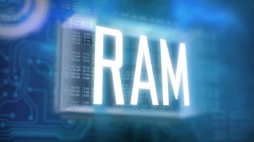Whether you’re a gamer, a professional working from home, or someone who enjoys browsing the internet, performance matters. If your computer is feeling sluggish, you may find yourself at a crossroads: should you add more RAM to your current machine, or is it time to invest in a brand new PC?
Understanding RAM and Its Importance
Random Access Memory (RAM) is a crucial component of your computer that affects its ability to multitask and run applications smoothly. More RAM allows your system to handle more tasks at once, which can significantly improve performance, especially when running memory-intensive applications like video editing software, graphics design tools, or even modern games.
Adding RAM: The Pros
- Cost-Effective: Upgrading RAM is often much cheaper than purchasing a new computer. If your current device is otherwise functioning well, adding RAM can give it a new lease on life without breaking the bank.
- Improved Performance: For users whose systems slow down when too many applications are open, adding RAM can provide a noticeable speed boost. This is especially true for those who use heavy applications or engage in multitasking.
- Simple Upgrade: For many desktops and some laptops, adding RAM is a relatively straightforward process. Some users can perform the upgrade themselves without needing professional assistance.
- Extended Lifespan: An upgrade can extend the life of your current machine, allowing you to postpone the purchase of a new PC.
Adding RAM: The Cons
- Limited Impact: If your computer has other bottlenecks (like an outdated processor or a slow hard drive), simply adding RAM may not resolve performance issues.
- Potential Compatibility Issues: Not all RAM is compatible with all systems. Users must ensure that they purchase the correct type and speed of RAM for their specific motherboard.
Getting a New PC: The Pros
- Latest Technology: New PCs come with the latest processors, graphics cards, and storage options, which can significantly improve performance and efficiency.
- Better Compatibility: A new system is built to work as a cohesive unit, minimizing compatibility issues that may arise from upgrades in older machines.
- Warranty and Support: New computers typically come with warranties and customer support, providing peace of mind against potential hardware failures.
- Improved Features: A new PC may include updated features like better battery life, enhanced connectivity options, and more efficient cooling systems.
Getting a New PC: The Cons
- Higher Cost: Purchasing a new computer can be a significant investment, especially for high-performance models.
- Data Migration: Moving data from an old computer to a new one can be time-consuming and may require additional tools or assistance.
- Learning Curve: New operating systems or interfaces can sometimes come with a learning curve, requiring users to adapt to new software and settings.
Making the Decision
Deciding between adding RAM and buying a new PC ultimately depends on your specific needs, budget, and the current state of your computer. Here are some guidelines to help you decide:
- If your system is relatively recent and just needs a performance boost for multitasking or specific applications, adding RAM might be the way to go.
- If your computer is several years old and struggles with basic tasks, investing in a new PC might provide significant long-term benefits and a better overall experience.
Both adding RAM and purchasing a new computer have their merits. Assess your current computer’s capabilities, consider your usage patterns, and determine your budget to make an informed decision. With the right choice, you can enhance your computing experience and meet your technological needs effectively. Happy computing!
